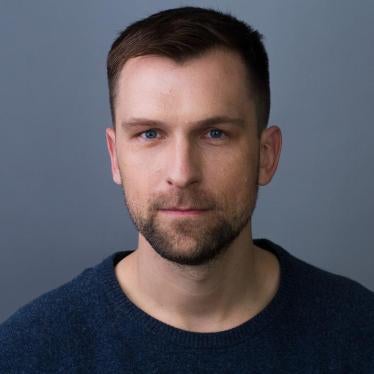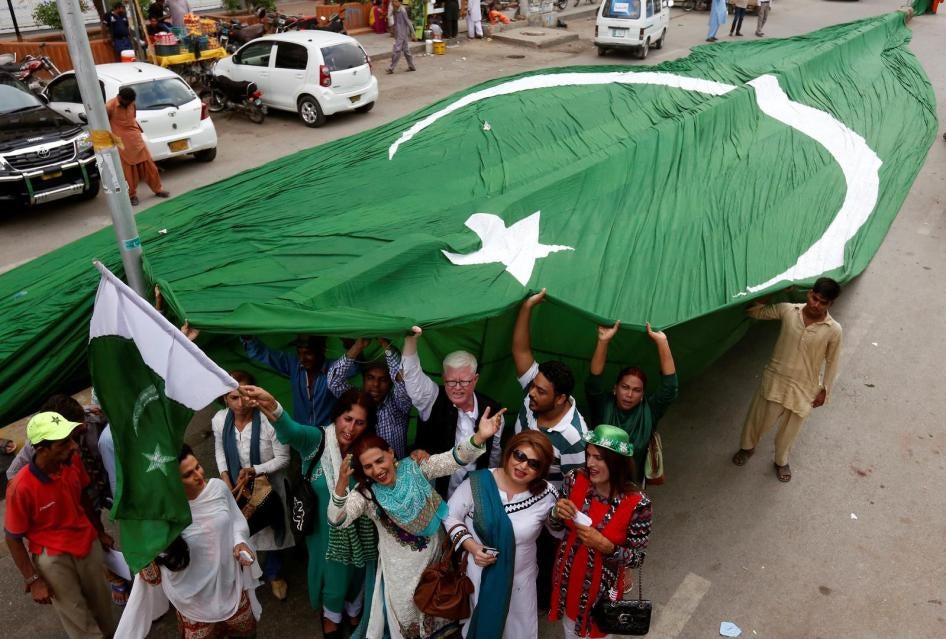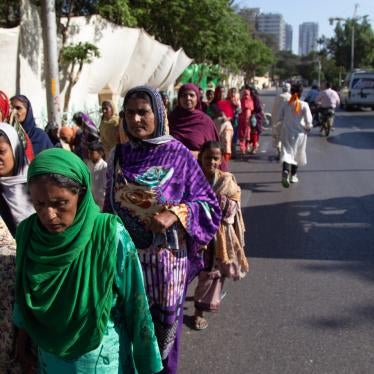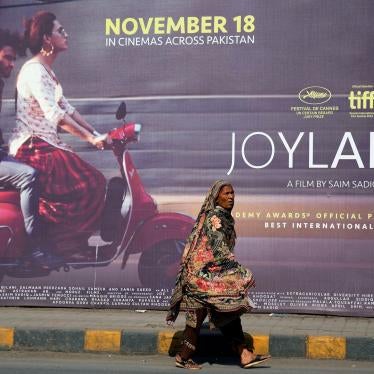On the evening of May 22, Alesha, a 23-year-old transgender woman and human rights activist in Peshawar, the capital of Pakistan’s northwestern Khyber Pakhtunkhwa province, received a phone call from some transgender friends. A local gang was demanding money and threatening them with violence if they didn’t pay — so Alesha rushed to the scene to help.
The confrontation turned violent, and the gang shot her six times at close range and left her for dead. The friends rushed Alesha to a hospital — but it was no refuge. For six hours, doctors debated — even jeering at Alesha’s friends as she lay bleeding — whether to put her in the male or female ward. Activists protested vehemently, even getting provincial politicians to stop by, but the wait was too long and Alesha died.
Alesha was a member of TransAction Khyber Pakhtunkhwa, a nascent network of transgender and intersex women who have in recent years begun more vocal advocacy for their basic rights and safety. Their community has organized around the abject violence they face at the hands of local gangs, silence from the authorities responsible for protecting them, and indifference or incompetence from doctors meant to save their lives.
In addition to reactive campaigns to highlight the brutality the community faces almost daily, TransAction Khyber Pakhtunkhwa is on a mission of a different — though not unrelated — type: to be counted. The group has filed a petition at the Peshawar High Court seeking to postpone Pakistan’s federal census, originally due to begin in March but already delayed as a result of alleged political meddling over voting districts, until a promised third-gender column is added to the form. Echoing third-gender recognition campaigns from across the region, the activists are emphasizing a connection between the brutality of their daily lives and the lack of recognition from their government.
The group uses terms such as khawaja siras, hijra, intersex, and transgender for their identities — a mix of bodily and self-expression factors that do not confirm to typical notions of “male” and “female.” (There is considerable popular confusion over the terms. For example, in June, a group of Muslim clerics issued a decree that was widely reported to be a blessing for transgender women to marry; however, activists discovered, it was a rather narrow statement about intersex people under Islamic law.)
In South Asia, identity categories such as hijra — for people assigned male at birth who develop a feminine gender identity — have long been recognized culturally, if not legally. In recent years, activists have pursued the formal recognition of a third gender. Hijras’ traditional status, which included bestowing blessings at weddings, had provided some protection and a veneer of respect. However, rather than being viewed as equal to others before the law, they were regarded as exotic and marginal — an existence dictated by boundaries and limitations, not rights.
Pakistani law includes provisions to protect the rights of transgender people due to a 2011 Supreme Court judgment. In that decision, similar to those from other courts in South Asia, Pakistan’s Supreme Court called on all provincial governments to recognize the rights of transgender people. The judgment specifically called on the police to improve their response to cases involving transgender people, and on other officials to ensure the rights to basic education and employment. Some local governments have carried out parts of the court order, including by creating employment programs — for example, as tax collectors in Karachi.
Development experts, international agencies, and governments are increasingly regarding the inclusion of sexual and gender minorities in population data sets as not only necessary and desirable, but also feasible. Data-informed decisions, after all, require including the population in question in the information-gathering phase. Or, as the United Nations Development Program put it: “When people are counted, no one is left behind.”
In 2011 Nepal included a third-gender category on its national census, and in 2011 India did as well. The first time around, such data gathering exercises are not necessarily accurate or robust; implementation issues, including the personal bias of enumerators, may inhibit full inclusion. However, the political victory of such inclusive measures should not be overlooked. For a population so deeply marginalized, inclusion on a national census can have immense symbolic value as well.
Pakistan is overdue for a national census — its last one was in 1998. Security concerns and alleged voting district manipulation lie behind repeated delays. Early this year, referencing the 2012 Supreme Court judgment, the Pakistan Bureau of Statistics indicated it had adjusted both the paper form and the computer software for the census to include a third-gender column. Within weeks, however, activists found that the final versions of the census forms, for reasons unknown, included only male and female options. In September, TransAction Khyber Pakhtunkhwa asked the Peshawar court to suspend the census until it included the third category — a move the provincial court can consider and even refer to a higher court.
The inclusion of a third gender on the census will not solve the crisis of violence and marginalization Pakistani transgender and intersex people are facing. Outright violence, employment discrimination, and abusive police responses will not be brought to an end by census forms. It is a crucial step, nonetheless, for those who wish to be recognized as something other than male or female. Progress on this front would be an important gesture from the government that it takes their plight seriously.
In the meantime, the brutality shows no sign of letting up, and the bigotry of some caregivers shows no sign of eroding.
On August 9, in Abbottabad, Khyber Pakhtunkhwa, a transgender woman named Sumbal was shot three times in the abdomen by unidentified assailants who were attempting to abduct and rape her. She was turned away at the district hospital; the staff said they only have two wards — male and female. The police only consented to register the case when faced with protests by activists. Sumbal survived the attack because she got medical care.
A gesture from the central government that Pakistanis can be counted as male, female, or a third gender would send a message that everyone counts equally — and that authorities from police to physicians should do their part to uphold basic security and dignity for all.










